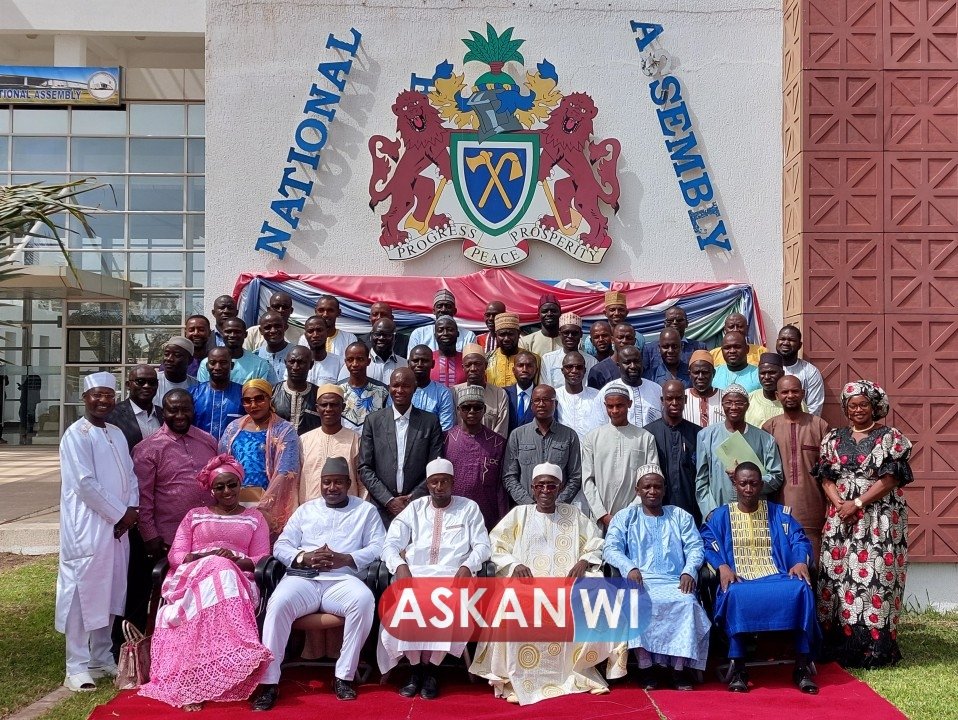Barrow Papers: Explaining the Explanatory Notes 6
Members of the Sixth Legislature (c) Askanwi
This is the seventh publication in a series of articles focusing on the 2024 Draft Constitution Gazetted by the Gambia Government on 14th August 2024 written by Human Rights Advocate, Madi Jobarteh. There are six parts to the sixth publication so far.
By Madi Jobarteh
Constitution Series 7 - Explaining the Explanatory Notes 6
Still on the review of the Explanatory Notes to the Barrow Papers 2024…
In a bid to maintain the National Assembly as a purely people’s parliament, the 2020 Draft abolished the position of ‘Nominated Members’ from the National Assembly. It provided that only elected representatives will be members. But the Barrow Papers brought back the Nominated Members and then also gave power to the president to remove them from office. This is unprecedented in the history of the Gambia for a president to have the power to sack a National Assembly Member.
In early 2019, Pres. Barrow attempted to do that when he illegally sacked Nominated Member Ya Kumba Jaiteh. She took the matter to the Supreme Court which ruled in her favour that the President does not have the powers to remove a member of parliament, hence Barrow’s actions were declared unconstitutional, null and void. From this experience it is obvious that Barrow now wants to constitutionalize the power for the president to freely sack Nominated Members.
Their justification for keeping Nominated Members is that they want all sectors to be represented in parliament to promote inclusion and diversity. But there are many other ways and places to promote inclusion, diversity and enrich legislative discussions through democratic means without having Nominated Members and the power to remove them. Therefore, one is tempted to ask, if the Barrow Papers’ intention is truly about strengthening democratic governance in the Gambia or merely to create a monarchial president?
As its name and function imply, the National Assembly should be constituted of only elected representatives and so only the electorate must have the power to recall their representatives. Hence by giving the president such powers, not only does it give the president a monarchical character but also it interferes with the principle of separation of powers. By nominating and removing parliamentarians, the independence, dignity and integrity of the parliament will be severely compromised hence weakening their oversight and accountability functions.
In a democratic republic that is worthy of its name, a president cannot be given the function and power to put individuals into the parliament by himself. By doing so it means those nominated members will be obliged to owe allegiance to the president first and foremost than to the republic. Such a situation can only weaken the role and function of the parliament in holding the president and his government accountable. This is even more worrying where the Speaker and his deputy are elected from the Nominated Members thereby making the president the determiner of who should lead the parliament.
The evidence of this is glaring from the days of Jammeh to the present. By having the speaker and deputy coming from the Nominated Members, we have seen how these members ended up serving Jammeh and not the Gambia. For example, the current Deputy Speaker Seedy Njie was a Nominated Member, but we saw how he abandoned the Gambia in 2016 to stand with Jammeh to reject the verdict of the people.
In January 2017, Speaker Abdoulie Bojang failed to stand with Gambians in fulfillment of his constitutional obligation to ensure the 2016 election results were protected. Rather he allowed the National Assembly to unconstitutionally extend the life of the president and the parliament thereby annulling the election results. Thus, in effect what the Barrow Papers is seeking to do is to create a president who controls both the Executive and the Legislature hence threatening good governance, democracy and accountability.
Check out for Part 7

